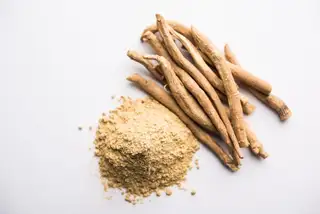
Top 5 Herbs for Diuretic Support
Diuretics are substances that increase the production of urine, helping the body to eliminate excess fluid and waste. While there are several pharmaceutical diuretics available, many people are turning to natural herbs for diuretic support due to their potential benefits and fewer side effects. In this article, we will explore the top five herbs that can provide diuretic support.
1. Dandelion (Taraxacum officinale)
Dandelion is one of the most well-known herbs for diuretic support. The leaves, roots, and flowers of the dandelion plant are all used for their medicinal properties. Dandelion is rich in vitamins and minerals, including potassium, which is important for maintaining proper fluid balance in the body.
The diuretic effect of dandelion is due to its high content of flavonoids and terpenoids. These compounds help increase the production of urine by stimulating the kidneys and promoting the excretion of excess fluid and waste. Dandelion can also help improve liver function, which is important for detoxification and the elimination of waste products.
Dandelion can be consumed in several ways. The leaves can be eaten raw in salads or cooked as a vegetable. The roots can be roasted and brewed into a tea. Dandelion supplements are also available in capsule or tincture form.
2. Nettle (Urtica dioica)
Nettle is another herb that has diuretic properties. The leaves and stems of the nettle plant are used for their medicinal benefits. Nettle is rich in vitamins and minerals, including potassium, iron, and silica.
The diuretic effect of nettle is due to its high content of flavonoids and polyphenols. These compounds help increase the production of urine by stimulating the kidneys and promoting the excretion of excess fluid and waste. Nettle can also help reduce inflammation and improve circulation.
Nettle can be consumed as a tea, tincture, or capsule. It can also be added to soups and stews for added nutrition.
3. Juniper Berry (Juniperus communis)
Juniper berry is a small, blue-black berry that is commonly used as a diuretic. The berries are rich in essential oils, including pinene, camphene, and limonene. These oils give juniper berry its characteristic aroma and also contribute to its diuretic properties.
The diuretic effect of juniper berry is due to its ability to stimulate the kidneys and increase the production of urine. Juniper berry can also help reduce inflammation and improve digestion. However, it is important to note that juniper berry should be used in moderation, as excessive consumption can lead to kidney damage.
Juniper berry can be consumed as a tea, tincture, or capsule. It can also be used as a spice in cooking.
4. Horsetail (Equisetum arvense)
Horsetail is a herb that has been used for centuries for its diuretic and healing properties. The stems of the horsetail plant are rich in silica, which is important for maintaining healthy skin, hair, and nails. Horsetail also contains flavonoids and alkaloids, which contribute to its diuretic effect.
The diuretic effect of horsetail is due to its ability to increase the filtration rate of the kidneys and promote the excretion of excess fluid and waste. Horsetail can also help reduce inflammation and improve circulation.
Horsetail can be consumed as a tea, tincture, or capsule. It can also be added to baths for a soothing and detoxifying soak.
5. Parsley (Petroselinum crispum)
Parsley is a common herb that is often used as a garnish or flavoring in cooking. However, parsley also has diuretic properties. The leaves and stems of the parsley plant are rich in vitamins and minerals, including potassium, vitamin C, and flavonoids.
The diuretic effect of parsley is due to its ability to increase the production of urine by stimulating the kidneys. Parsley can also help reduce inflammation and improve digestion.
Parsley can be consumed fresh in salads or cooked as a vegetable. Parsley tea is also a popular way to consume this herb for its diuretic benefits.
How These Herbs Work as Diuretics
The herbs mentioned above work as diuretics in different ways. Some herbs, like dandelion and nettle, increase the production of urine by stimulating the kidneys. Others, like juniper berry, work by increasing the filtration rate of the kidneys. Horsetail and parsley also have diuretic effects, but they may work through different mechanisms.
In addition to their diuretic properties, these herbs may also have other health benefits. For example, dandelion can help improve liver function, nettle can reduce inflammation, juniper berry can improve digestion, horsetail can promote healthy skin and hair, and parsley can improve digestion and reduce inflammation.
Precautions and Considerations
While these herbs can be beneficial for diuretic support, it is important to use them with caution. Some herbs may interact with medications or have side effects. For example, juniper berry should be used in moderation, as excessive consumption can lead to kidney damage. People with kidney problems or those taking diuretic medications should consult with a healthcare professional before using these herbs.
It is also important to drink plenty of water when using diuretic herbs to prevent dehydration. These herbs can increase the production of urine, which can lead to fluid loss if not compensated by increased fluid intake.
In conclusion, the top five herbs for diuretic support are dandelion, nettle, juniper berry, horsetail, and parsley. These herbs can help increase the production of urine and eliminate excess fluid and waste from the body. However, it is important to use these herbs with caution and consult with a healthcare professional if you have any underlying health conditions or are taking medications. By incorporating these herbs into your diet or using them as supplements, you can support your body's natural detoxification processes and promote overall health and well-being.





